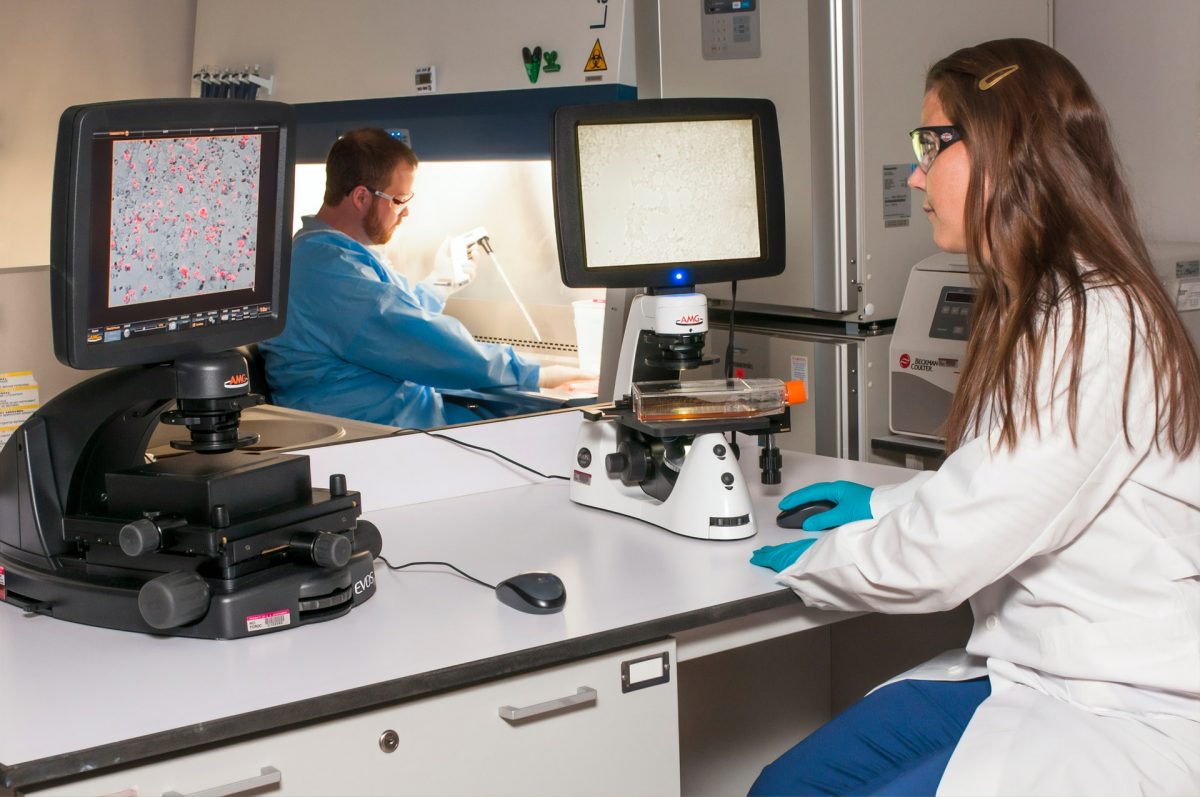Pregnancy is an exciting time. Each stage of pregnancy is different and as your due date gets closer, morning sickness and fatigue begin to subside as your baby grows. During pregnancy, scheduling routine visits with your OB/GYN is necessary so that you can keep up with routine testing and make sure that you and your baby are in good health. During your pregnancy, your OBGYN may recommend maternal serum screening. This is a quick, outpatient procedure that can help you better plan for your baby’s future.
What is maternal serum screening?
Maternal serum screening, or a quad screen, is a type of prenatal genetic testing that analyzes four substances in your blood –– alpha-fetoprotein (AFP), human chorionic gonadotropin, estriol, and inhibin A.
Doctors usually recommend maternal serum screening between weeks 15-22 of your pregnancy. It can help determine if your baby has an increased risk of Down syndrome, Edwards syndrome, neural tube, or abdominal wall defects.
What are the types of maternal serum screening?
There are two distinct types of maternal serum screening:
Combined First Trimester Screening (CFTS). CFTS is a type of maternal serum screening that takes place between weeks 9-13 of your pregnancy. CFTS determines your baby’s risk of certain genetic abnormalities by evaluating a blood sample and a nuchal translucency ultrasound.
Second Trimester Manual Serum Screening (2TMSS). 2TMSS only requires a blood sample. During 2TMSS, your OB/GYN or general practitioner will insert a needle into a vein in your arm to get a sample of blood. They will then send your sample to a laboratory that can provide results in as little as a week.
Who can benefit from maternal serum screening?

Any woman who is pregnant can benefit from maternal serum screening. The test is optional, but is worth considering if you’re 35 or older, have a family history of developmental irregularities, or are living with Type 1 diabetes.
Maternal serum screening is more than just a blood test. Your OB/GYN or general practitioner evaluates your sample based on your age, ethnicity, and weight. They use this information to determine your baby’s risk of a genetic abnormality.
Maternal serum screening doesn’t confirm a diagnosis. If you receive an abnormal result, you can choose to investigate risks further with additional testing.
What do the results of maternal serum screening mean?
Maternal serum screening evaluates the levels of four specific hormones in your blood. Here’s what some of those results might mean:
- High levels of alpha-fetoprotein indicate a neural tube defect like anencephaly or spina bifida. It can also indicate that your baby is older than you thought, or that you’re expecting twins.
- Lower than normal levels of alpha-fetoprotein, human chorionic gonadotropin, and inhibin A indicate your baby is at an increased risk of Down syndrome or Edwards syndrome.
- Lower than normal levels of estriol may also indicate that your baby is at an increased risk of Down syndrome or Edwards syndrome.
How accurate is maternal serum screening?
Maternal serum screening isn’t 100% accurate, but it has a proven track record of success. Research suggests that, combined first-trimester screening (CFTS), maternal serum screening can accurately predict 9 of 10 pregnancies affected by Down syndrome. Second-trimester maternal serum screening (2TMSS) can accurately predict 75-80% of pregnancies affected by Down syndrome.
Once you receive the results of your maternal serum screening, your OB/GYN or general practitioner can refer you to a genetic counselor who can answer any questions you may have about your results.




